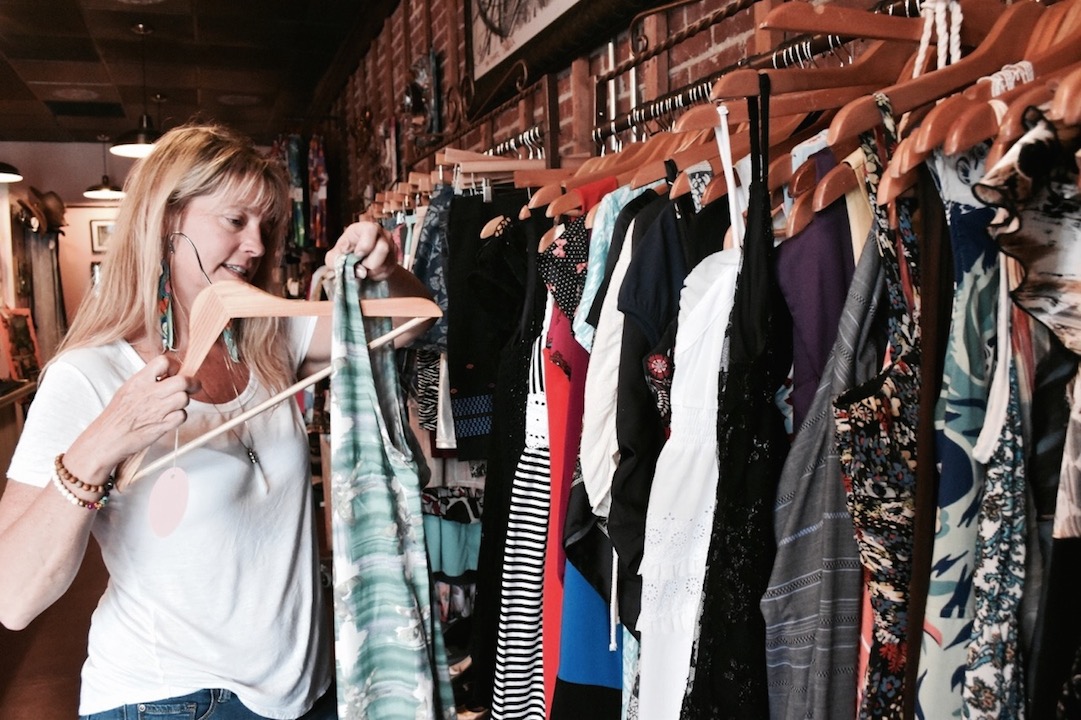
Photo by Julie Householder
By Mallory Hopkins| gargoyle@flagler.edu
‘Fast fashion’ has taken the industry by storm. The fashion industry used to have four seasons; now there are 52, a new season for each week of the year. Ethical fashion is the idea of getting clothes from companies that do not exploit workers in other countries with unfit conditions and purchasing clothes that are as safe for the environment as possible.
Guyanna Erkelens owns The Closet, a small-scale, locally owned consignment boutique in downtown St. Augustine. She took over the business from her daughter six years ago. The Closet tries their best to use recycled products and promote ethical fashion.

Photo by Julie Householder.
“The average person is trained through commercials, their parents, where they grew up to go to the big box stores and buy what everyone else is buying,” Erkelens said about the Fast Fashion industry and how it came to be.
From the beginning, The Closet has been using recycled bags and reusing as much material as they can. Purchasing consignment or thrifted clothes is a way to shop ethically. Instead of buying something new with packaging and more material, you are purchasing something ‘pre-loved’ and supporting a local business.
“It’s about making people more aware and more aware of the impact on our environment,” said Erkelens. She has seen the effects of ‘fast fashion’ and hopes there is a shift to more conscious shopping.
Jojo Bender, 21, tries to shop only at thrift and consignment stores. As a younger woman, Bender finds it hard to resist temptation when it comes to buying mainstream clothes from major companies but stays on track for the most part for the ethical reasons.

Photo by Julie Householder.
Ethical fashion isn’t just about the environment: it’s also about not buying from major companies that underpay and mistreat employees.
“I don’t want to give what I’ve earned to companies that would do that,” said Bender.
Bender was a philosophy major and when she started learning about labor in major companies.
“I learned about advertising and I learned about labor and what it does to people,” she said, adding that this lifestyle requires a lot of research in order to know which companies produce their products ethically.
She said that she is grateful for this type of lifestyle because it has changed the way she shops and the way she looks at clothes and trends. She’s more considerate of where it came from and wonders what went into making it.
“I’ve got into the habit of checking where it’s made,” said Bender.
She’s more likely to purchase something if it was made in the US because we have labor laws. Besides ethical reasons, Bender says that shopping consignment or thrift is just more fun.
“In a thrift store, I get more satisfaction,” she said. “It’s almost like it’s meant to be.”



Be the first to comment on "The devil wears consignment"